By John Ludwig
A few weeks ago, Kyle pointed out that The Flash can’t overcome its CW roots. And now that the show just aired its fourth episode, it looks like it’s trying to make some progress on this score, however, it’s still got a ways to go. As Kyle highlighted, Team Flash had a bit of a disintegration, potentially so that it would have something to work toward in the final arch of the season, but contrary to my expectations, they’ve quickly resolved this problem. Barry has learned to trust Jay Garrick, and the team is working well together again. This isn’t the only time this season has pleasantly surprised me so far. When Francine West (Joe’s ex-wife, who as far as Iris West knows is dead) returns to Central City demanding to see Iris, it obliges Joe to tell Iris the truth, which he obviously was afraid to do. I was legitimately afraid they were going to have that “you lied to me, now you need to spend the rest of season making it up to me” story arch. This trope has been used so much in both The Flash and Arrow that I’ve developed an instinct for predicting things like this:
I knew someone would interrupt and provide new information that would make it a bad moment to discuss the matter. These shows do this all the time. Iris is so happy, I don’t want to ruin that, Joe thinks. So predictable. I was annoyed and figured the show was going to drag this out the way last season of Arrow did with Laurel Lance concealing the truth about Sara’s death from her father, Quentin. They dragged that out for two to three episodes until Quentin finds out and then broods and shuns Laurel for several more episodes before any closure is reached. But this time around with Joe and Iris, I was pleasantly surprised. Joe attempts to tell Iris but is discouraged. He expresses his concerns to Barry and later confesses to Iris. He is remorseful and deeply distraught for his mistake. Iris processes this and forgives him. They move on. All in the same episode.
Arrow has surprised me in the same way. I was really worried we were going to spend the majority of this season with Oliver Queen and John Diggle at odds, but they made up by the third episode. Diggle plainly explains his problem with Oliver (Oliver has lost his trust); Oliver plainly explains his problem with Diggle (Diggle won’t give him a chance to earn it back). Diggle considers this point and Oliver later gets his chance, earning back that trust. All in the same episode. It makes me happy to see both shows resolving plot threads without needless prolongation.
And while these instances signify a break from the shows’ usual habits, it doesn’t mean that this will be the new norm nor does it mean that the shows are without other problems. The main thing that detracts from both shows is that they still continue to think of the audience as stupid and consistently interject explanations to things we could gather with context clues.
Secondly, in Arrow‘s case, the show doesn’t know what to do with Felicity other than make her a love interest. When she’s not being a love interest, she’s busy knowing everything about everything until it’s convenient for her not to, forcing her to outsource her work to that other character with glasses, and when she’s not doing either of those, she’s crying.
And thirdly, in The Flash‘s case, the show is still not exercising control over it’s “chest sport” (when a show goes out of its way to sport exposed chest) with the cast, particularly Iris and Patty Spivot.
The show objectifies the rest of the cast to some degree or another (including Barry and Jay), but it definitely does this more with the female characters, and in Patty’s and Iris’s case it’s problematic because we’re supposed to believe that they are women in professional occupations. In season one, Iris was concerned about not being taken seriously as the aspiring journalist she wanted to be. Patty lobbied hard to get on the Metahuman task force. It makes little sense for them to dress so risqué on the job. And even if they’re not concerned about how their co-workers perceive them, it then portrays them as tactless. The show is clearly going out of its way to pander to the low-brow interests of the male gaze. And sure, occasionally we get a shirtless Jay Garrick, Diggle or Oliver (HOT HOT HOT!), but most of the time there’s a legitimate reason for their being shirtless. The chest sport of the women is much more egregious because the show alters reality to keep them prim and sexy. The best example of this so far in the season is Patty’s patrol officer uniform.
Most police departments have dress codes that include the mandatory inclusion of undershirts that cover the area below the neck line. Here, you can obviously see that she forgoes it for the sake of chest sport. Not only that, the shirt has been altered. If you look at the area above the button on her blouse, you’ll notice that it looks glued together to create just the right about of décolletage.
The shows have a few other problems regarding minor plot holes. To wit:
Additionally, most of us already know the CW is planning a spin-off series with several key supporting characters from both shows, and it’s become somewhat burdensome to watch them go through the motions of setting the characters up for this. I would be a little bit more appreciative if the shows would acknowledge in some way that we know what they’re doing.
Despite these problems, the show are making some improvements that offer a glimmer of hope for their other issues. And besides, each show already has plenty to be happy about. The Flash‘s most valuable player Tom Cavanagh as Dr. Harrison Wells is back from parallel dimension and still has that disturbing look of constant sexual gratification. Furthermore, Arrow has a new villain as Damien Darkh played by Neal Mcdonough, and if his portrayal of Justified‘s Robert Quarles is any indication, there’s a lot of hijinks to look forward to.
I eagerly await for what both shows have in store and for more improvements that free them from their CW-itis.
Check out some of our other posts below
Jessica Jones: You should be excited




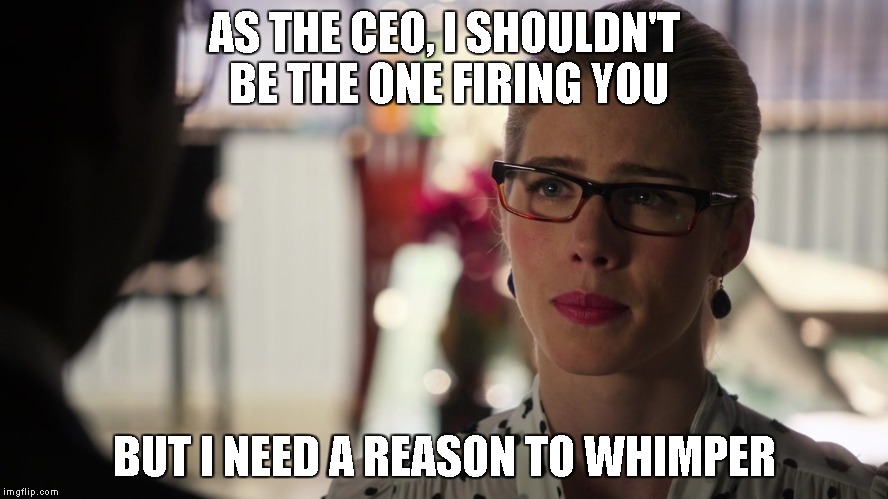
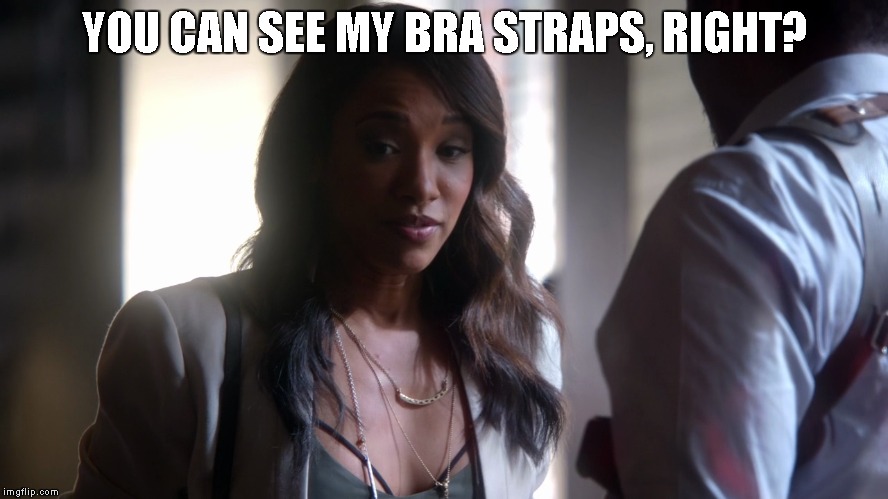
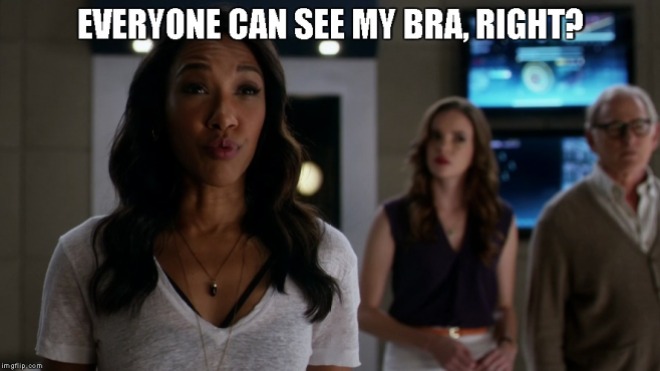
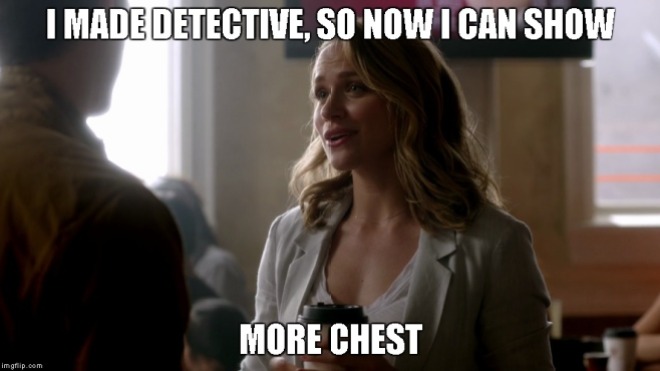
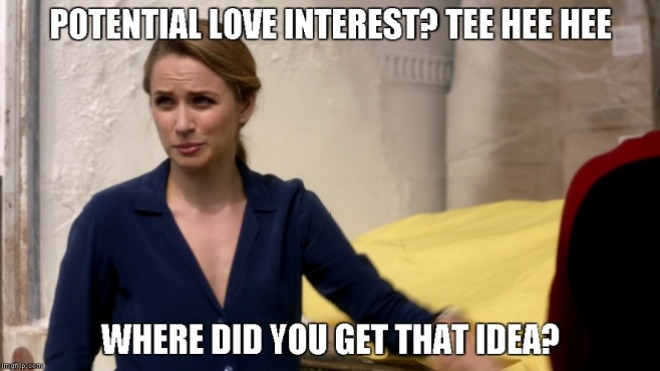
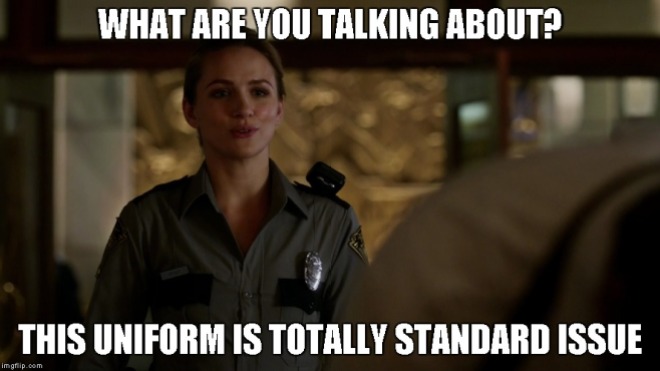


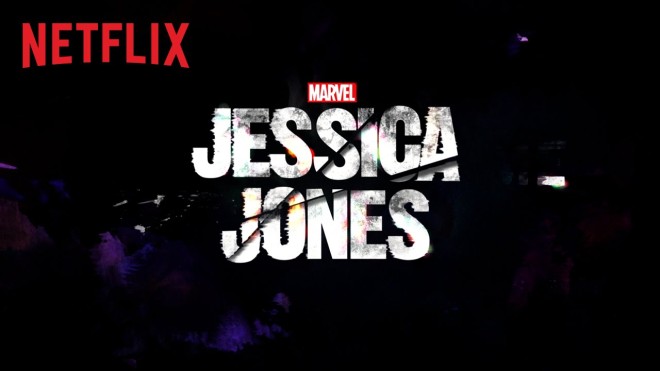

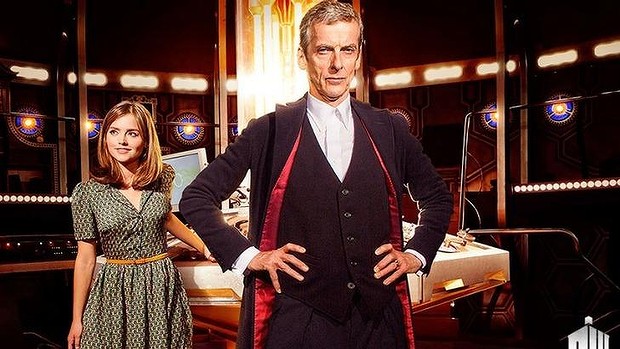



Hey, you say that Iris and Patty are consistently overexposed in their clothing, bras showing, too much cleavage, then you refer to them as “prim and sexy”. Prim means the opposite of what you’re describing. You might describe Peggy Carter as prim, she’s always classy and never shows more than she should. Nuns are generally prim, whether in habits or street clothes. Girls with plunging necklines are not.